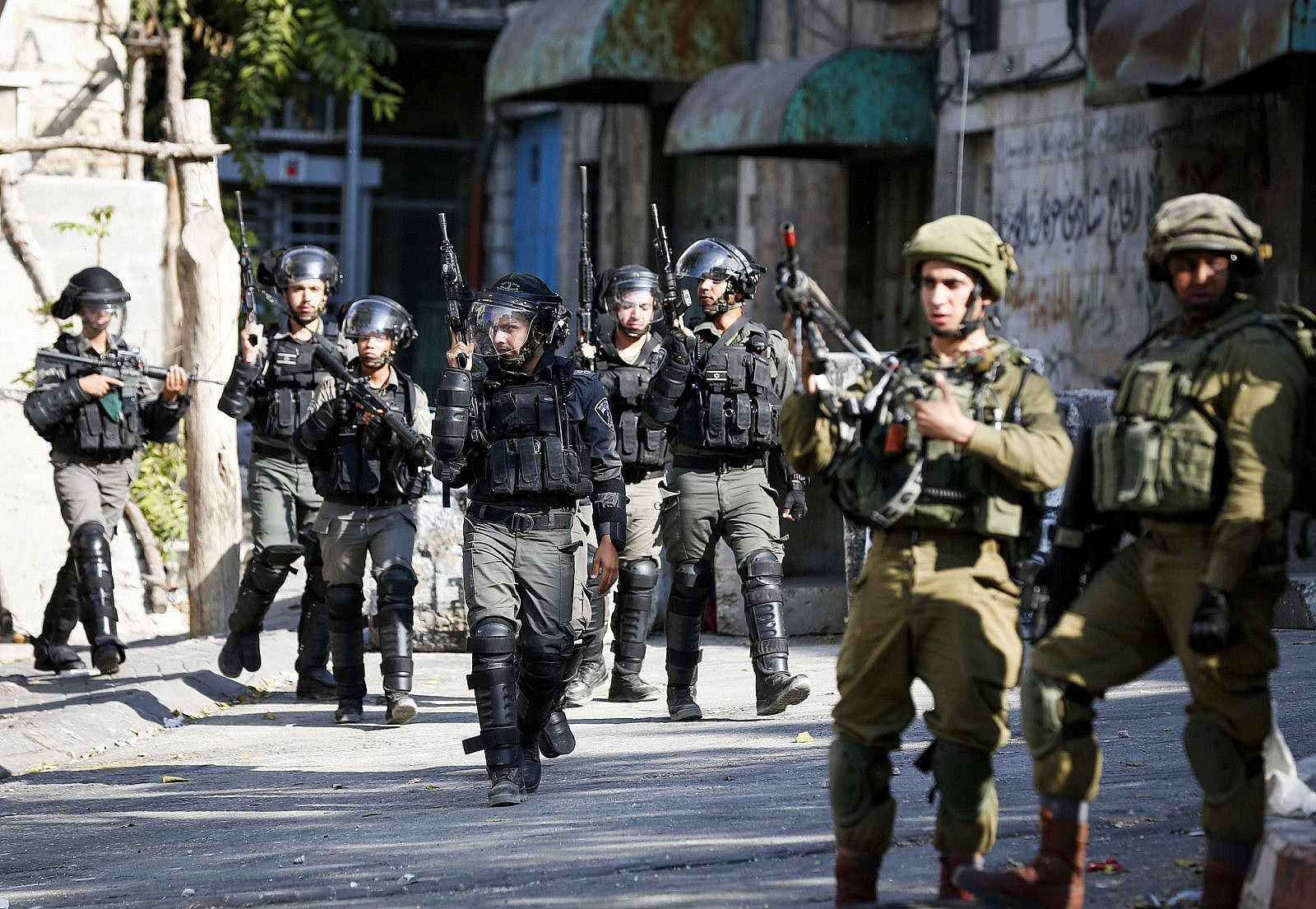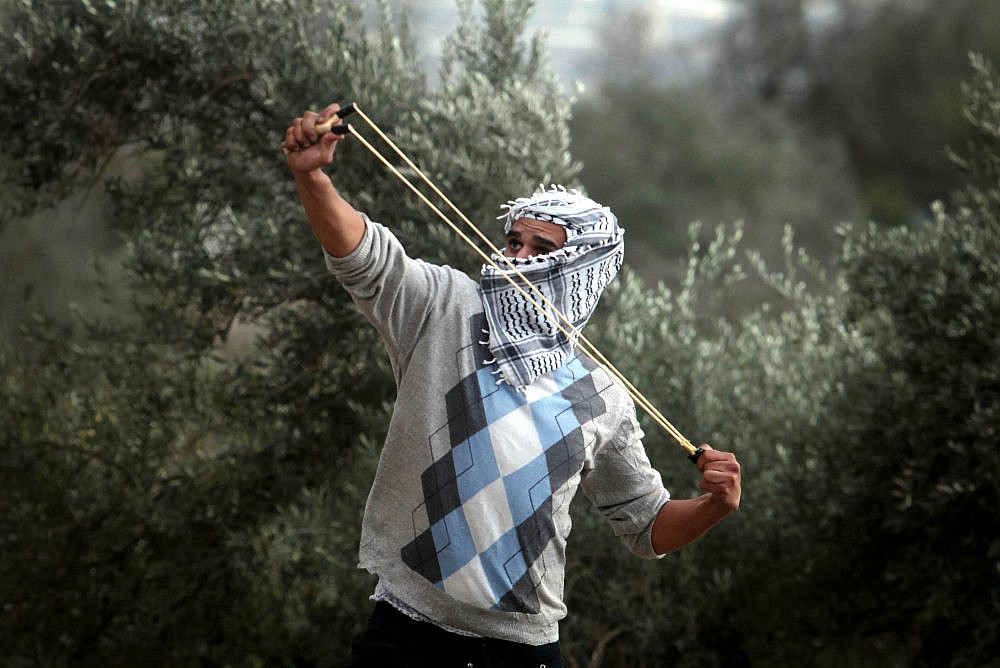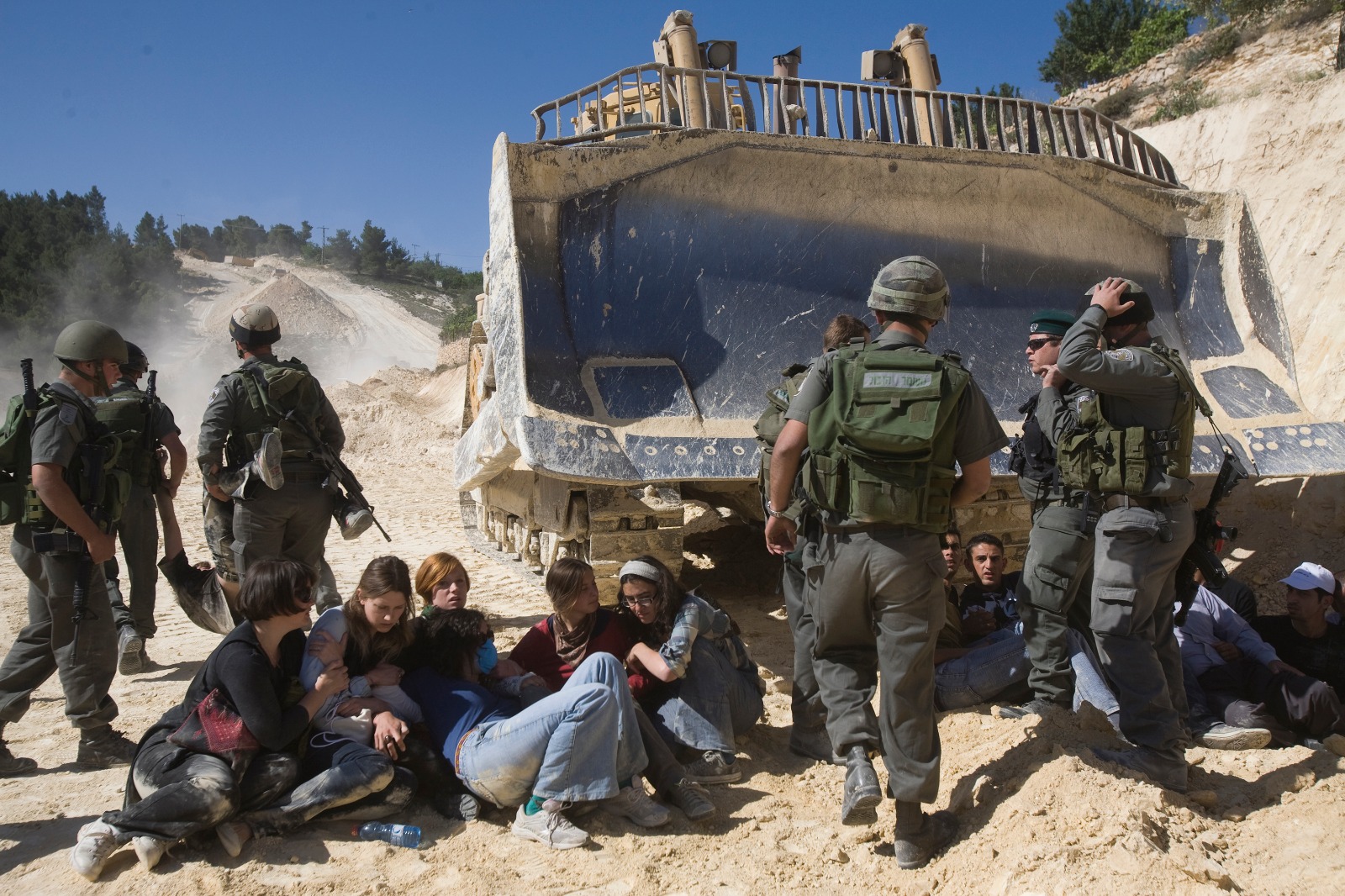“We should cross the lines and disobey the law, despite the price we might pay. We should join the children of the stones and Molotov cocktails. We should follow their footsteps.” These words were the original conclusion to an op-ed written for Haaretz last week by Jonathan Pollak, an Israeli activist currently in police detention for refusing to respond to a lawsuit filed against him by the extreme-right NGO Ad Kan.
But it seems Pollak’s words were too much for the newspaper’s limited liberal discourse. Shortly after publication, the concluding line disappeared from the Haaretz website, only to resurface in the form of screenshots and shocked responses on Twitter. Aluf Benn, Haaretz’s editor-in-chief, claimed that the version that included the line was mistakenly uploaded to the website and later removed.
Unsurprisingly, right-wing websites and figures relished the moment. The far-right HaKol HaYehudi (“The Jewish Voice”) — one of whose editors was convicted in 2017 for incitement to violence and racism — published an article describing Pollak’s op-ed as scandalous incitement. Amit Segal, a journalist whose father was a convicted member of a Jewish terrorist organization, tweeted Pollak’s line alongside the “Incitement to Violence” section of the Israeli Penal Code. Take after take, Pollak’s words were raised as proof of the left’s violent character.
Ironically, the controversial sentence was never meant for the far-right; as far as their camp is concerned, any demonstration, poem, or legal representation in support of Palestinians is enough to prove the left’s treachery. Pollak’s words were actually intended for the Israeli left itself.
Pollak’s call must have provoked a great degree of discomfort among many left-wing Israelis, certainly for most Haaretz readers. That is precisely why he chose to write those words: to challenge the consensus among the Jewish left that the best and only way to express the anti-occupation struggle is through peaceful, nonviolent means.
The centrality of nonviolence as a tenet of the Israeli anti-occupation movement stems from several factors. One, which is not sufficiently discussed, is the prominence of NGOs within the movement or, more precisely, their reliance on foreign donor requirements. This economic dependency necessitates a commitment to certain values promoted by donor criteria, among which are an absolute abidance to nonviolence and to Israeli law itself. This is the very same law that enables Israel’s military rule and oppression of its dissidents in the first place.
Haaretz’s exclusion of Pollak’s sentence is emblematic of these discursive boundaries. Like the right, the Israeli left tends to denounce any manifestation of Palestinian violence, including limited forms such as stone-throwing or Molotov cocktails against Israeli security forces.
These practices of popular protests are not unique to Palestinians, but are common in many countries including Greece, Italy, and France. Still, the left repeatedly calls for a “Palestinian Martin Luther King” or “Palestinian Gandhi” — someone they can support in a way that coincides with their belief system.
However, this position completely ignores the fact that, historically, violence has always played a significant role in social and political change. To varying degrees, violence was adopted by almost every anti-colonial and liberation movement worldwide as a key tool to achieving their people’s rights. The left’s prevailing discourse thus produces a dubious binary of legitimate and illegitimate resistance that does not correlate with international experience.
The exclusive emphasis on nonviolence further sidelines the fact that the occupation itself is a violent phenomenon by nature and by design. Despite the left’s fantasy that they only need to support Palestinian hunger strikers and peaceful protestors, Israel’s military oppression will always produce violent protest, making stones and firebombs almost necessary to be heard.
Challenging the left’s prevailing attitudes does not derive from some childish fantasy or masculine attraction to violence. Rather, the very questioning of the monopoly of nonviolence originates from a recognition of the impact these ideas are having on Palestinians resisting occupation.

In many instances, the left’s discourse is used by NGOs and activists as conditions to decide whether Palestinians are eligible to receive material support, legal aid, and solidarity. Thus, while being determined far from the reach of the people it is meant to serve, the Israeli left’s views in fact have feasible consequences on Palestinians who choose to resist in ways that break the nonviolent doctrine.
All this is transpiring as Israel leads a campaign to label any kind of Palestinian resistance as inherently illegitimate. To do this, Israel is expanding the notion of Palestinian “violence” to the point that even nonviolent resistance is viewed as a form of terrorism that must be annihilated.
This is why Israeli government officials are constantly producing new terms to demonize any form of Palestinian agency: “construction terror” is used to describe illegally-built Palestinian homes; “stone terror” for Palestinian youth throwing rocks; “diplomatic terror” for international opposition to the occupation; and so on.
In a similar pattern, the Israeli military is also redefining the conditions for its use of lethal force against Palestinians who resist its rule, in order to further justify its brutal repression of protests in the occupied territories. According to B’Tselem, this has led to the “expansion of the term ‘life-threatening’ to include circumstances in which soldiers’ lives are not actually in danger, such as stone-throwing or tire-burning during protests, or fear of damage to the Separation Barrier.”
Taken altogether, there is a clear correlation between the Israeli left’s narrow notions of nonviolent struggle and the state’s classification of illegitimate Palestinian resistance. By labeling certain types of actions as illegitimate to the anti-occupation struggle, the left tacitly legitimizes the state’s excuses for carrying out daily violence against Palestinians. In other words, the left unwittingly reinforces rather than contests Israel’s domination.
If we truly want to adopt a political stance that challenges oppressive ideologies, we should start by crossing the lines of the discourse’s obsession with nonviolence — precisely as Pollak called for. We must question our dominant beliefs and shift toward a framework that acknowledges the right of Palestinians to choose their own tools of resistance.
A version of this article was first published in Hebrew on Local Call. Read it here.


